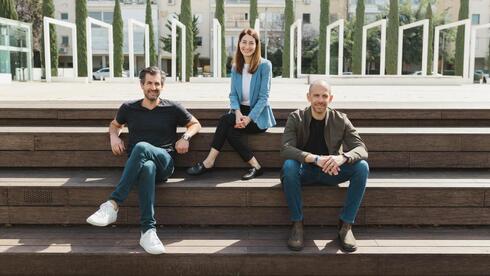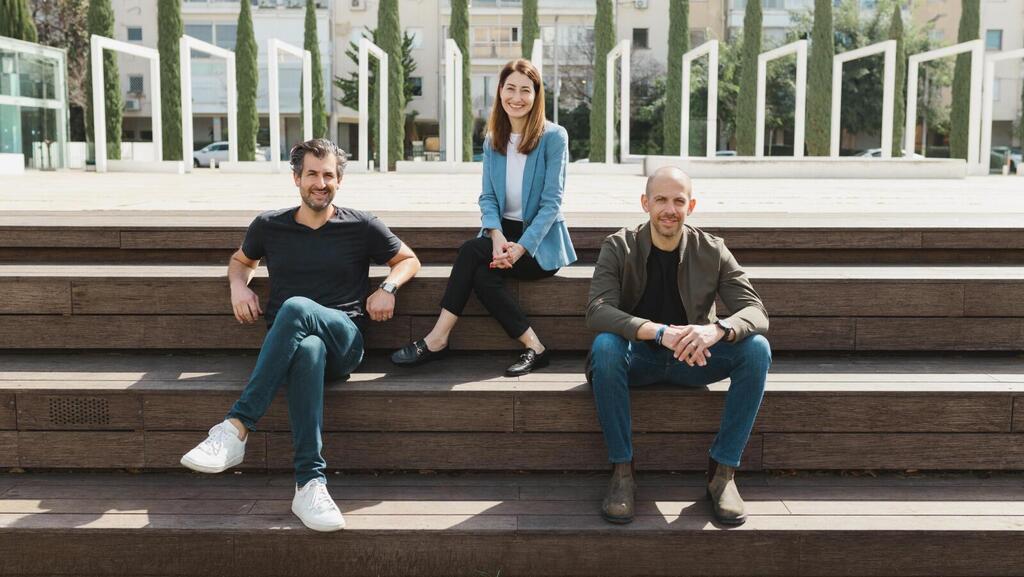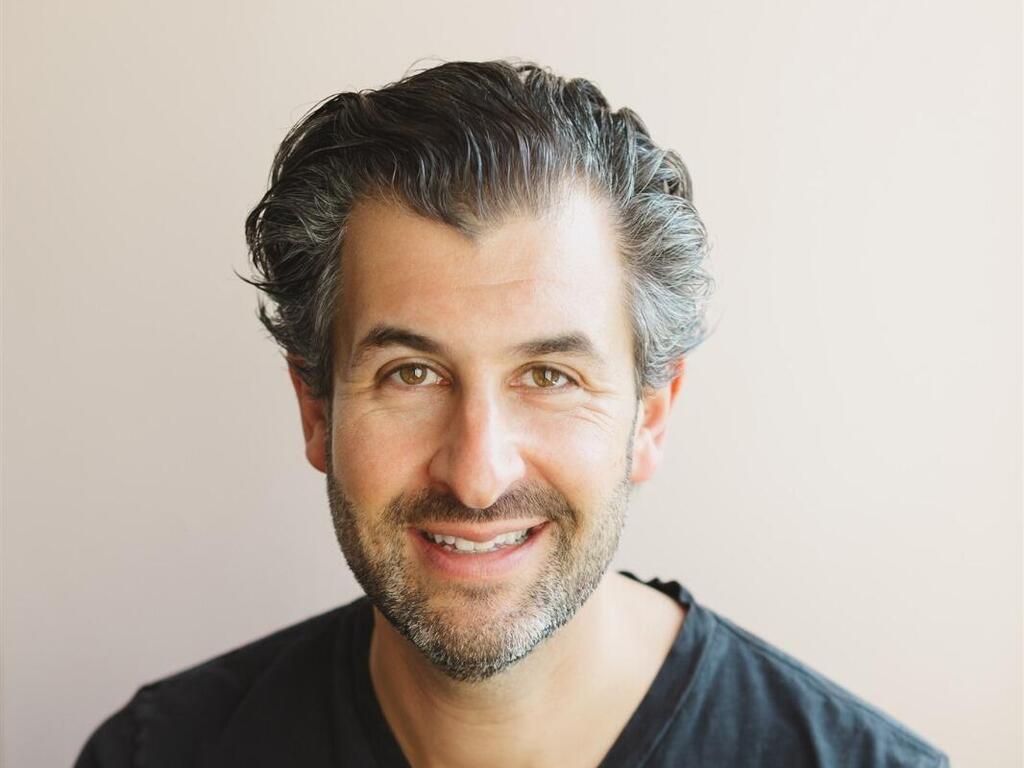
IL Tech in NY
“Israeli entrepreneurs have shown a resiliency not found anywhere else in the world”
Joule Ventures joined CTech as part of the ongoing IL Tech in NY series, in collaboration with Israeli Mapped in NY.
“The fewer dollars invested in Israeli companies are more due to the macro reset of the venture market than the current geopolitical challenges in Israel,” explained Daniel Frankenstein, Partner at Joule Ventures. “Our view as a firm is that Israeli entrepreneurs have shown a resiliency not found anywhere else in the world during this time. That is a critical competency for an entrepreneur.”
The VC joined CTech as part of the ongoing IL Tech in NY series, in collaboration with Israeli Mapped in New York. Joule Ventures invests at the seed/early stage and opened its New York operations in 2017.
“Our leading indicator that this is a great time to invest in Israeli companies is that our most recent fund has the largest percentage of companies already generating $1MM in ARR than we’ve ever had in any prior vintage,” the fund added.
You can read the entire interview below.
Fund ID
Name and type of VC: Joule Ventures - early stage/seed stage
Main fields of investment: B2B software - security, data, AI, ML, the digitization of legacy infrastructure and the introduction of technology into legacy industry.
Names of managing partners: Daniel Frankenstein, Dafna Winocur Biran, Brian Rosenzweig
Year of founding/start of NY operations: Fund established in 2010; NY Office opened in 2017
Total sum of investments/size, number of funds: Firm AUM is $200MM across 5 Funds.
Median investment amount/Average investment in startups: First check is $1-$3MM with significant follow-on capacity.
Number/size of rounds led: Led over 40 seed rounds.
General background on the organization, its managers, its founders and partners:
Joule Ventures was founded in 2010, making its first investment out of Fund 1 in 2011, filling the early-stage investment gap left wide open coming out of the global financial crisis. Founded under the name Janvest Capital (and rebranded to Joule in 2020), the firm serves as a two-way bridge: both for Israeli entrepreneurs wanting to go to market more effectively in the United States as well as a conduit for more sophisticated capital from the United States to have exposure to an actively managed and diversified portfolio of Israeli startups.
Joule is managed by three partners, Brian Rosenzweig (Atlanta), Dafna Winocur Brian (Tel Aviv), and Daniel Frankenstein (New York). Brian and Daniel are dual US-Israeli citizens and lived in Israel for 5 and 6 years, respectively. Dafna is a native Israeli and lived in the US for 5 years.
The VC vision:
Venture Capital has become a much more mature and larger asset class. Joule stays true to the firm’s founding principles of being an early stage, lead investor while also delivering full lifecycle value to the portfolio. As funds get bigger, outcomes must also be larger and require a particular macro environment. Joule has made the commitment to remain small, disciplined, and contrarian to some of the social proofing that leads to consensus decision-making. Joule is in the performance business, not the fee business. This also allows the firm to be a better partner to the founders we back by allowing for the fund to achieve full value by considering a variety of outcomes across the portfolio. Joule is a top decile net cash-returning firm across all early vintages.
What types of Israeli startups/entrepreneurs are you interested in?
Joule looks for talented Israeli entrepreneurs the world over. About half the investments the fund makes are outside of Israel into Israeli entrepreneurs. Joule focuses on entrepreneurs that are solving real problems for real companies where there is an identifiable customer and a multi-vertical application. The most successful investments are domain experts bringing years of experience to their innovation in a sector they truly understand. Joule does not invest in hardware, stays out of highly regulated environments, and does not invest in medical/digital health companies.
Why invest in an Israeli company in New York? What advantages do such companies have? How is the New York market different from the Israeli market?
It isn’t exactly about the advantage of an Israeli company in NY, it is about the advantage that exists when there’s a partnership between an Israeli team and Joule Ventures. First, Israeli founders come with best-in-class product capabilities.
However, that advantage is unfortunately overtaken by go-to-market challenges that lead to the misdiagnosis of customer intent, misunderstanding of market feedback that can be from a cultural gap, and a lack of discipline and focus. Everything about the New York market is different from Israel. With the right partnerships, the New York market can be a huge advantage and launch pad for Israeli companies.
How do Israeli entrepreneurs/startups differ from their local counterparts?
Typically more product-heavy with a founding team that is more engineering heavy.
How do you assess the risk involved in investing in Israeli companies in the current situation?
We take our responsibility of managing long-term capital that has a 10-year time horizon literally. We look at the macro environment and act accordingly. During periods of particular buy-side motivation (such as in 2021), we look to harvest long-term positions. During periods like today where the venture ecosystem is going through a reset, globally, we are as active on the buy side as we’ve ever been. This isn’t just with new deals but also into our existing portfolio where we have the opportunity to “buy up”.
The fewer dollars invested in Israeli companies are more due to the macro reset of the venture market than the current geopolitical challenges in Israel. Our view as a firm is that Israeli entrepreneurs have shown a resiliency not found anywhere else in the world during this time. That is a critical competency for an entrepreneur. Our leading indicator that this is a great time to invest in Israeli companies is that our most recent fund has the largest percentage of companies already generating $1MM in ARR than we’ve ever had in any prior vintage. From a business performance standpoint, the past two years have been amongst the best in our 15-year history.
Are there any legal or regulatory considerations that you take into account when investing in Israel?
Yes - there are many items both in terms of legal and tax that need to be considered. This is one of the reasons our LPs choose us for their Israeli exposure. We are an American fund but have all of the tax, compliance, and regulatory items handled in Israel so that doesn’t create a complexity or put a burden on our Limited Partners.
How do you deal with possible law/regulation changes in Israel?
We are quite active with our local partners (audit, bookkeeping, tax, and legal) to stay on top of everything.
Are there global trends that influence your decisions to invest in Israeli high-tech?
Noting specifically.
We are in the midst of the AI revolution. Do Israeli companies have an advantage in this sector, or is there actually room for improvements?
Israeli companies have been innovating in the world of AI for more than a decade. While I don’t think Israeli companies have any particular advantage in developing AI, I do believe Israeli companies have a major advantage in leveraging AI capability for more efficient product launches, better products in general, and lower cost structures to get products to market.
Two suggestions for Israeli entrepreneurs on what to do in New York:
- New York feels really big compared to Israel. But it is still a small ecosystem. Understand that a reputation develops quickly and always put your best (and most prepared!) foot forward. Americans are less casual than Israelis and expect a prepared mind for meetings and pitches.
- Step out of your comfort zone. The Israeli ecosystem in NYC is robust but there’s so much more in New York.
Two suggestions for Israeli entrepreneurs on what not to do in New York:
- The US has a more formal business environment. Don’t wear shorts and flip-flops to a meeting. Do some research on who you’re meeting and be prepared.
- Scope your meeting before launching into your pitch. Time and time again, we see entrepreneurs launch into their presentation knowing little about their potential customers or investors. As more questions, learn more about the organization, and understand intent and interest. Then tailor your discussion to what is most interesting.
Examples of 2-3 of your most successful investments:
BioCatch: First check back in 2011; acquired by Permira in 2024 for $1.3b.
Coralogix: First check back in 2015; fast becoming the market leader in AI observability.
Reeco: Co-led seed round in 2021; Series A led by Aleph just recently.














